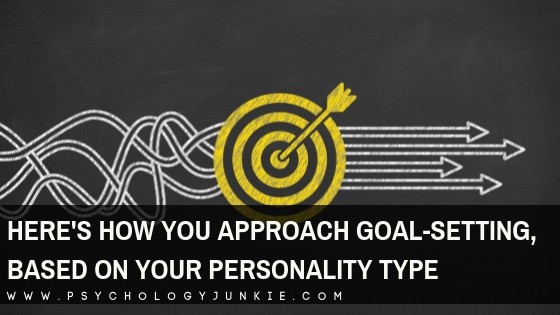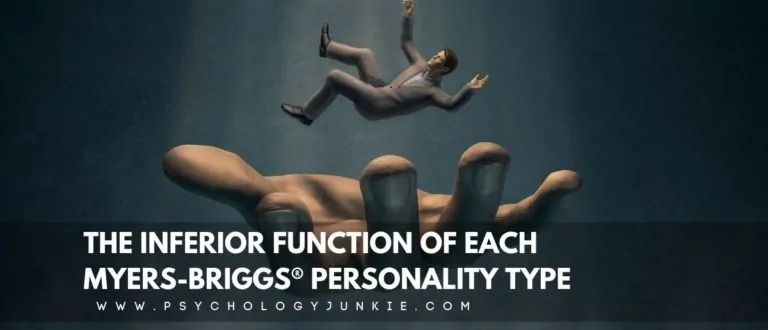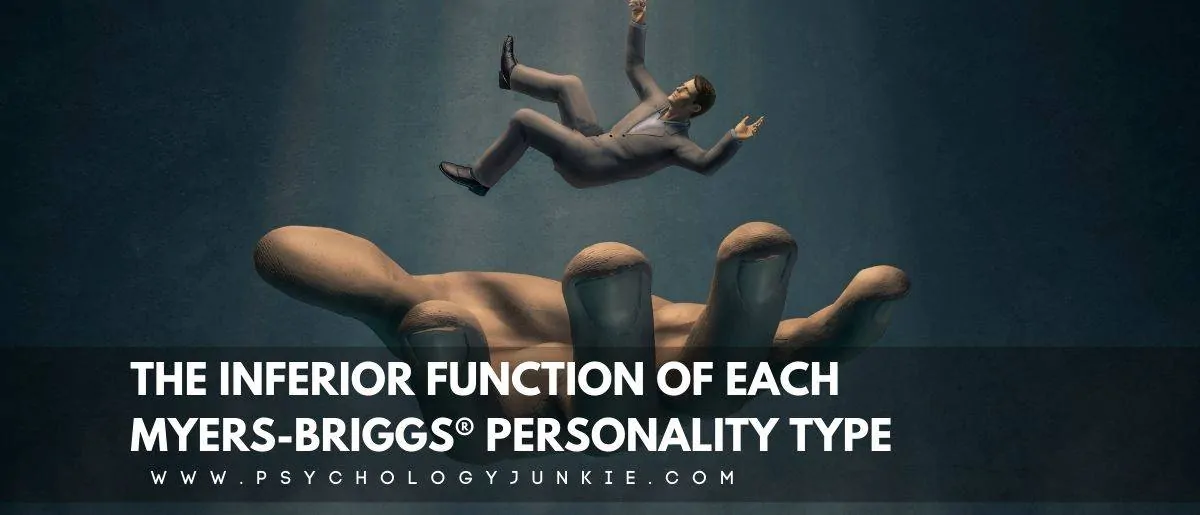Why INTJs Make Great Social Justice Advocates
Anyone who knows anything about Myers-Briggs is probably quite familiar with all of the stereotypes that are often made about the various types, online. ESFPs are flighty goofballs; INTPs are emotionless robots; INFJs are whimsical mystics; and ESTJs are militaristic administrators. None of the 16 types have escaped having their essence greatly oversimplified into a caricature – my personal favourite being the description of my own type. INTJs are typically described as the Emperor Palpatines of the MBTI – cold, calculating, hiding behind the scenes, emotionless, and plotting schemes which they delegate to someone else because they hate people. The recommended occupations for my type (other than Emperor of the Empire) often include scientist, executive, policy maker, and researcher, to name just a few. However, I personally know several INTJs (myself included – assuming that we are not all mistyped) who have occupations that don’t appear to match their type. Occupations such as author, psychologist, restauranteur, and travel agent, to name a few. I, myself, work in social justice and have worked in this field for over three years. I have done so with no more difficulty than anyone else, and in fact, have found some aspects of the job easier than some of my other colleagues. In what follows, I plan to try to explain why I think that my type HELPS me to be an effective social justice advocate.*
Before I begin, let’s take a quick look at the INTJs mental function stack:

Dominant function: Introverted Intuition (“Ni” for short). This function is focused primarily on perceiving underlying meanings, trends, and abstract connections.
Auxiliary function: Extraverted Thinking (“Te” for short). This function is focused primarily on using logic to create efficiency and effective systems in the outside world.
Tertiary function: Introverted Feeling (“Fi” for short). This function is focused on individual ethics and values.
Inferior function: Extraverted Sensing (“Se” for short). This function perceives the outside world and all the concrete details within it. It reacts quickly to spontaneous events and focuses on the present moment.
Why INTJs Make Great Social Justice Advocates
1) I’m good in a crisis: When the world is burning and there is a huge crisis occurring (violent client, missing client, public safety, etc.), I can calmly hear out the situation, and make a quick decision. Because Ni and Te are my dominant and auxiliary functions, I usually have about 4 contingency plans running for any situation (thought of in advance), and have no issue taking charge of the situation, delegating tasks as needed. However, I don’t jump in unless I am certain that it is needed, giving people space to figure it out on their own before assuming that they can’t without me. Contrary to popular belief, this is not because I have no heart, but rather because life has handed me its share of learning opportunities, and I understand that people have their own abilities to solve their problems as they see fit. When I was “in the grip” in the past, I would dive in and solve the issue uninvited; however, I have learned that the best use of my tertiary Fi and inferior Se is to trust in the ability of others to solve their problems, while inviting connection and offering emotional validation.
2) I understand the systems well: With Ni being my dominant function, I often get what I call “vibes from the universe” on what changes could be coming down the pipeline given the socio-political climate. I have used this information to role-play with clients, and have them walk me through what they would do if the unexpected was to occur. This auxiliary Te function problem-solving has received a lot of positive feedback as clients felt that they had options should things go wrong. If people are aware of what the possibilities are, then they can be truly empowered to make an informed decision.
3) I will go to bat for you: Anyone who says that INTJs are not loyal to people and are not able to work with them has never met one tasked with protecting people being crushed by the larger systems mentioned above. Because I can see the systems so clearly (dom Ni), and because I understand their mechanisms, I will 100% fight to the death for someone who is being unjustly treated at no fault of their own. Client advocacy is one of my strongest skills, and in fact, one of my former bosses called me a tiger when I was “on a mission” as I would argue with authority and point out all of the ways that the systems failed the people with whom I worked, all while holding the organization tasked with supporting my client accountable. That justice switch (tertiary Fi), when filtered through Ni, and brought to light through Te can be an intense, but as long as we all leave with viable solutions/action plans, it is all worth it.
4) I’ve done a lot of my own work: One of the greatest culprits of folks burning out in my field is that they have not dealt with their own “stuff”. People will over-identify with clients because of their own past wounds, or could seek external people to support to avoid their own pain. Trust me, I have been there – I understand the murkiness of life all too well, and the immense pain (and joy) that is inherent in being alive. However, because I am wired to problem-solving, I tend to face my problems head-on and delve into self-help regardless of the awkwardness it may bring up for me because my Ni and Te tell me that if I don’t fix the issue, that I may struggle with it again. Therefore, I have done the work of figuring out my feelings, and have learned coping skills which help me when I am under stress. I think that the motivation to do my own work has enabled me to erect good boundaries with clients (and other people in my world) as well as establish a healthy work-life balance. When you have helped yourself, it sets you up better to understand others’ perspectives, and to be truly be there for them in an authentic way.
In writing all of this, I do want to say that I recognize that my type is under-represented in this field, and that it is not the world’s easiest fit – who wouldn’t love to be a researcher?! However, it was important for me to write this as I have read several articles regarding INTJs which made it sound like it was impossible for anyone of this type to work with people as it would require exclusive use of Fi and Se, both of which are lower in the cognitive stack for us. I sincerely hope that I shed some light on a possible career path for INTJs out there who could potentially have the opportunity to, not only work with incredible people, but also to effect change in the socio-political climate. What INTJ wouldn’t love that?
This is a guest post by M. Levy
*A social Justic advocate is a person who works to effect change on the macro, meso, and micro levels with systems, organizations/communities, and individuals, respectively.
What Are Your Thoughts?
Did you enjoy this article? Do you have any insights or experiences to add? Let us know in the comments!

Subscribe to Our Newsletter

Want to discover more about personality type? Get the inside scoop with Susan Storm on all things typological, along with special subscriber freebies, and discounts on new eBooks and courses! Join our newsletter today!













Perhaps this is a good write up. I recently published an article about the truism of idealism.(INTJ)
Hi!
Thanks for your feedback – your article also sounds great. I’ll have to look that up!
-M
I like it . . It wrote my private note in this essay…
Hi Sara!
Thanks for reading, and it does not surprise me that you had similar thoughts. The descriptions online are quite narrow for this type, when INTJ can be so very creative (the gift of Ni!). Thanks for your feedback!
-M
I admire your bravery and your ability to act in a way that is just towards the underdog. You are a beacon that sheds light on the fact that despite INTJs functional stack, it does not define what one chooses to do with them. You are the antithesis to the perpetuated stereotype of the robotic INTJ. I’m not sure if anybody is reading this or if the message is received or if I make sense. But life advocates those who persist..
Hi!
Thanks so much for the feedback. While it is true that typical descriptions of my type do not include this field, I suspect that there are more of us out there like me. Genuinely appreciate the feedback, and I like your last line.
-M
One thing INTJs do care about is justice. Not just for us personally, but in general, and that the rules apply to all. I ran into many situations that had an impact on me personally, but on everybody else as well. I’d evaluate, then come up with several viable alternatives, then present the issues and solution to senior management. Nine out of ten times they simply wanted to dismiss the presentation they asked me to handle. They never did figure out that was a terrible plan as i rarely do not accomplish what I’m asked to do. Yet, the response i would get from rank and file, the employees i had gone to bat for, was often very dismissive. Even though they benefitted from my work, and often were given the option to not utilize whatever boon i had fought and won for them. Unfortunately, it matters not in the least to me if they liked it or not. The outcome was all that mattered. It is irrelevant to me if you don’t like the fact that you just were given an extra 30 minutes of break time, to be used if you chose to. What mattered way productivity increased by 12%, and employees stopped taking unauthorized or extended breaks. People are funny. All the way around. I still find myself hearing about workplace issues and can’t help but come up with solutions even though i don’t work there: My spouse does. It solves problems for her and that makes her happy, and her being happy makes me happy. Plus, i get a puzzle to solve even if it is just a thought experiment for me. I still have a difficult time knowing that i do not like people, yet am unable to avoid finding solutions that benefit those same people i do not care for. That’s one puzzle I’ve yet to find a reasonable solution to.
HI!
Yes, justice and problem-solving are some of the more entertaining things that this type loves to do! I’m not so sure that you don’t care about people, as it sounds like you care that your wife’s work environment is good for her. You are essentially doing what I outlined, just from a very different angle. Thanks for sharing all of that, and for your feedback.
-M
Good try. Social Justice is about finding that the world is ‘unfair’ and then having the hubris to advocate redoing the whole thing. Hardly a healthy thing.
Hi!
Social justice is aiming to bring to light the inequalities and injustices in how our current systems work. There are definitely a lot of folks who would love to see the status quo remain, but I am a huge advocate for improving the lives of the really vulnerable people that I work with (on a societal, community, and personal level). Thanks for your comment!
-M
Rings true to me! I am an INTJ thru and thru and am a social worker, (have always fancied getting into research but felt I couldn’t legitimately do that without working directly with clients first). This was a great read because it’s basically what I think about my self and my job on a daily basis, thank u!
Hi!
I knew that there were more of us out there!! Thank you so much for your comment!
-M
I’ll have to say that you very likely have been mistyped. If you have taken your tests via online media and not an actual Myer Briggs test, this would be a pretty good indication that you have been mistyped. I have not met many intjs in my life that I know of. But I am fairly certain using myself and what I have read about ints in general micromanagement is not something that we enjoy doing at all. While we can do it because we can do anything we certainly wouldn’t enjoy it in a capacity where we would actually do it for a living for very long. If you are going to go on and categorize yourself as an intj and base your articles as though you are giving an intjs perspective I would seriously consider taking an actual personality test.
Just wanted to let you know that the author of this article is a certified MBTI® practitioner. I think type can manifest in different ways depending on the individual.
Hi!
Thanks for the reply. As Susan said, I am certified. I took the official test at 14 (formally administered on the old mbti forms), again before entering the workforce (also formally administered), and again before my certification training (formal online thread with step 1 and step 2), and tested INTJ in all instances. Each type is capable of a wide range of behavioural expression – I personally find the information online very limiting of my type which is what motivated me to share a fresh perspective on it. Thanks for reading, and sharing your perspective.
-M
I’m a female INTJ (definitely typed correctly) and there are few things I find more unappealing than social justice. I’d prefer it to being eaten alive by fire ants, but that’s about it.
Hi!
This comment genuinely made me laugh, not because I disagree, but because it was so poignant. I definitely know that this field is not for everyone (let alone INTJs), but wanted to share a less travelled path for our type! Thanks for the feedback.
M.
Outstanding article. As a physician, I have seen those same responses kick in when responding to a crisis in the hospital or office, seeing when the institution was going off the rails, and going to bat for patients, nurses, assistants who were being put upon by forces outside their control. The challenge in today’s health care systems for an INTJ is that the prevailing norms value style over substance, appearance over value, spin over truth. We can emulate other styles “kinder gentler” approach, but it is energy and planning. Sooner or later, we will be tired, or in a hurry, and our natural response will emerge unfiltered, be misunderstood, and we will “become a problem”. All of those advantages will turn to handicaps (without ADA protections!) or understandings that we are being ourselves. To be our best selves we need to be given the respect and understanding others routinely receive. Just because we don’t cry at the drop of a hat does not mean it hurts any less; they just can’t see our tears.
Hi!
Wow, I completely resonate with what you said above! No joke that these systems can completely crush us if we try to emulate other types (eg. Feelers, as the stereotype goes). You are so right when you say that the health and allied health systems seem to value certain types, and seem to be built around them, which can be troublesome when we try to push back and avert harm to ourselves or our clients/patients. I understand the struggle well, and I am in the trenches with you fighting the good fight. Totally appreciate the comment.
M.
So, working in the military legal field as a paralegal, I find that working for a prosecutors office, I was the same way. I was able to be the office manager with ease, helping direct case management. It was important to watch my paralegals so they wouldn’t get burnt out and help mitigate vicarious trauma with training. I have such a past that when I knew I was going to do this job, I was talking to a counselor 6 months prior and able to do maintenance as needed. Now, it’s a matter of a self-conversation and I work through the emotions and move to the next task.
Now that I am moving forward in my career though, I have been leaning more to social injustice advocacy for children. Could you explain more about your particular advocacy field?
Thanks for the article.
Hi Tabatha!
Wow, your career sounds cool too! I do advocacy work in the prison system, in the community, and in the past in child welfare where I fought for children to be placed with family, their culture, or their community. I have learned a LOT from my work, but I have to say that the prison system was the most impactful for me, personally. Thanks so much for sharing, and I hope that you follow through on your career track. Advocating for kids is one of the most amazing jobs on the planet!
-M
Really enjoyed the article. I worked in sales and sales management for 23 years. I went back to school and got a teaching certificate and taught at Dallas ISD for 15 years. It was exhilarating and fun.
Thank you for this article. I am an INTJ female in Learning, Coaching, and Development and I cannot stress how fulfilling it is to topple and re-build company policies – inspiring people to think and be creative, knowing that they can ultimately change the workforce. Mature INTJs are objective, fair, and stubborn (when fighting for a cause). Nothing and no one can stop me get to my goal, and I usually set my sights on organizational systems – systems which govern company culture and “how” they reach goals, and how they can be evaluated, and steps on how to coach people to improve. Ahh! The thrill of knowing just how an organizational system works and how one can intervene to implement long-term changes. 😀